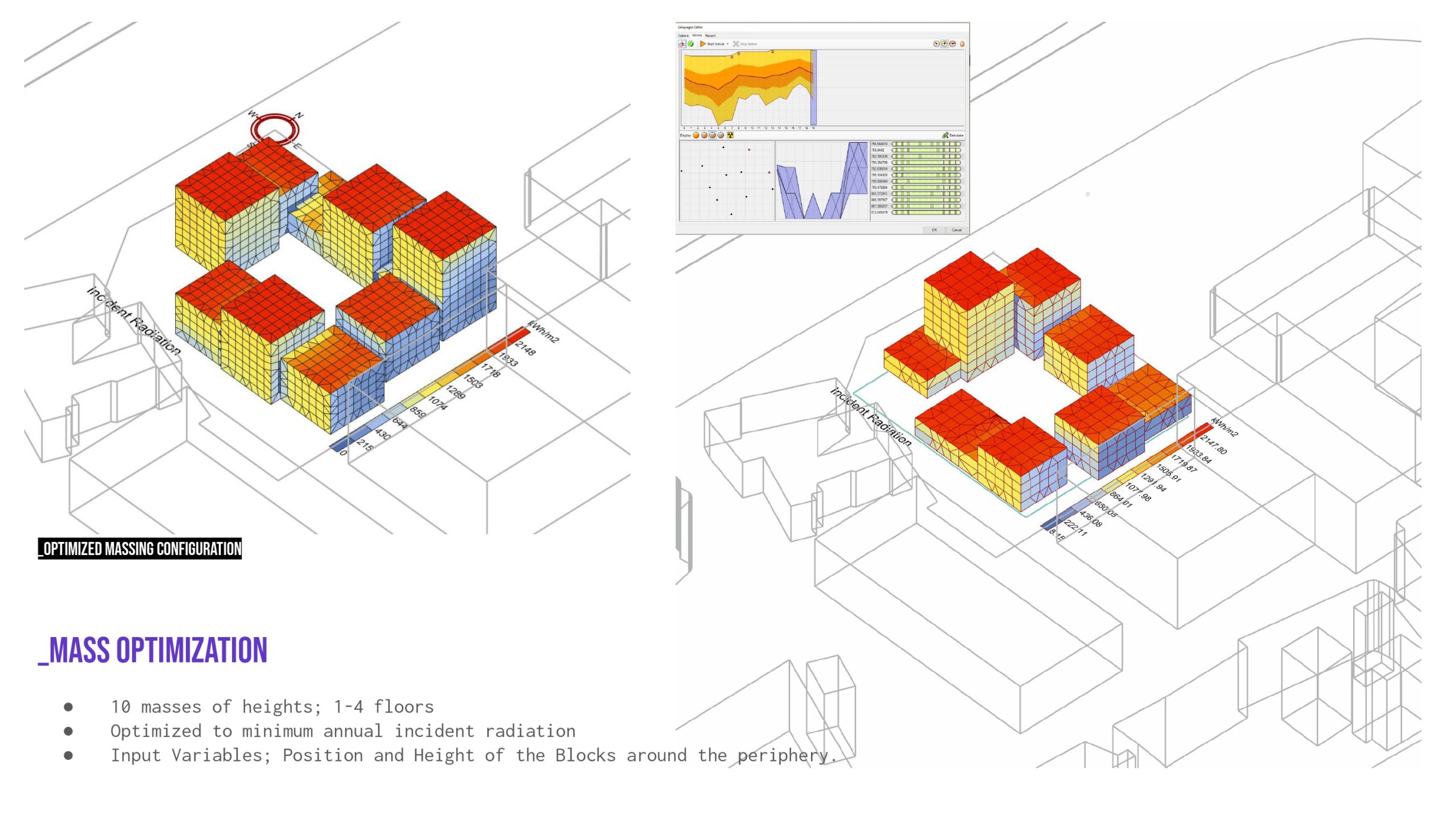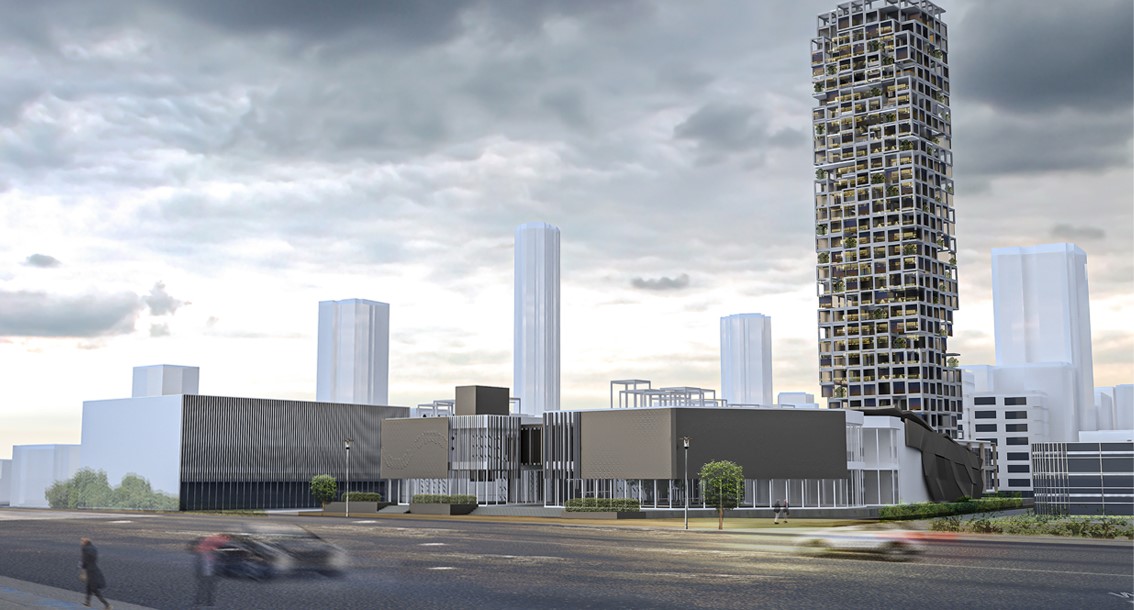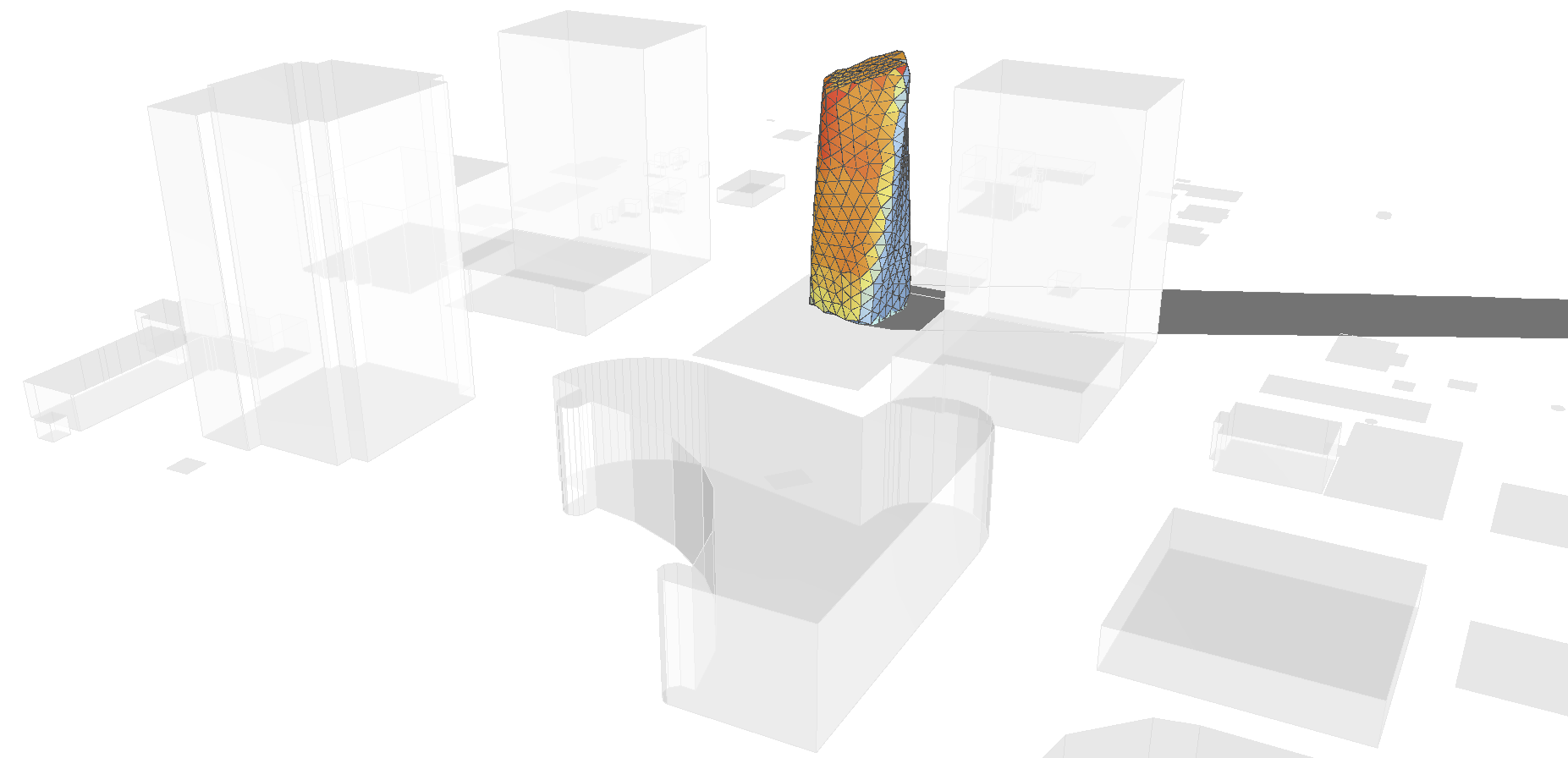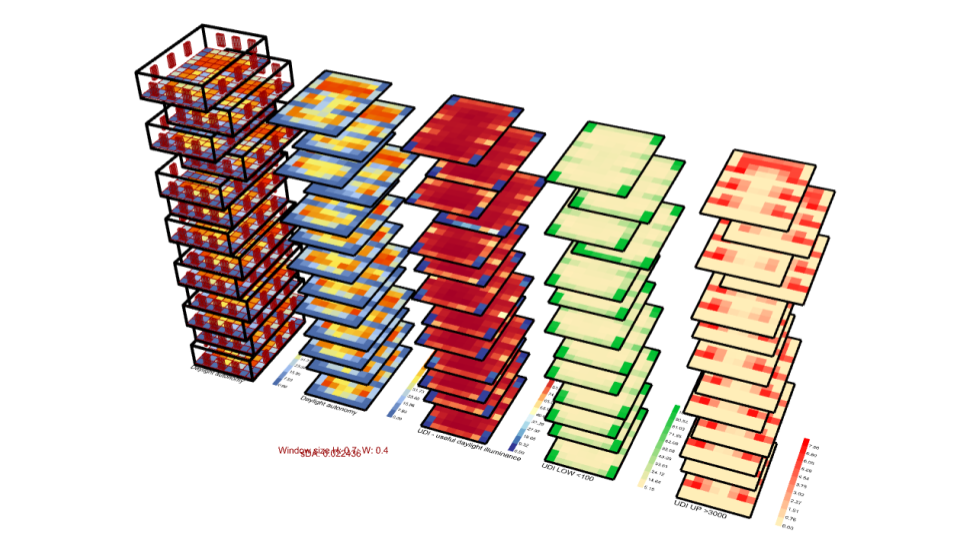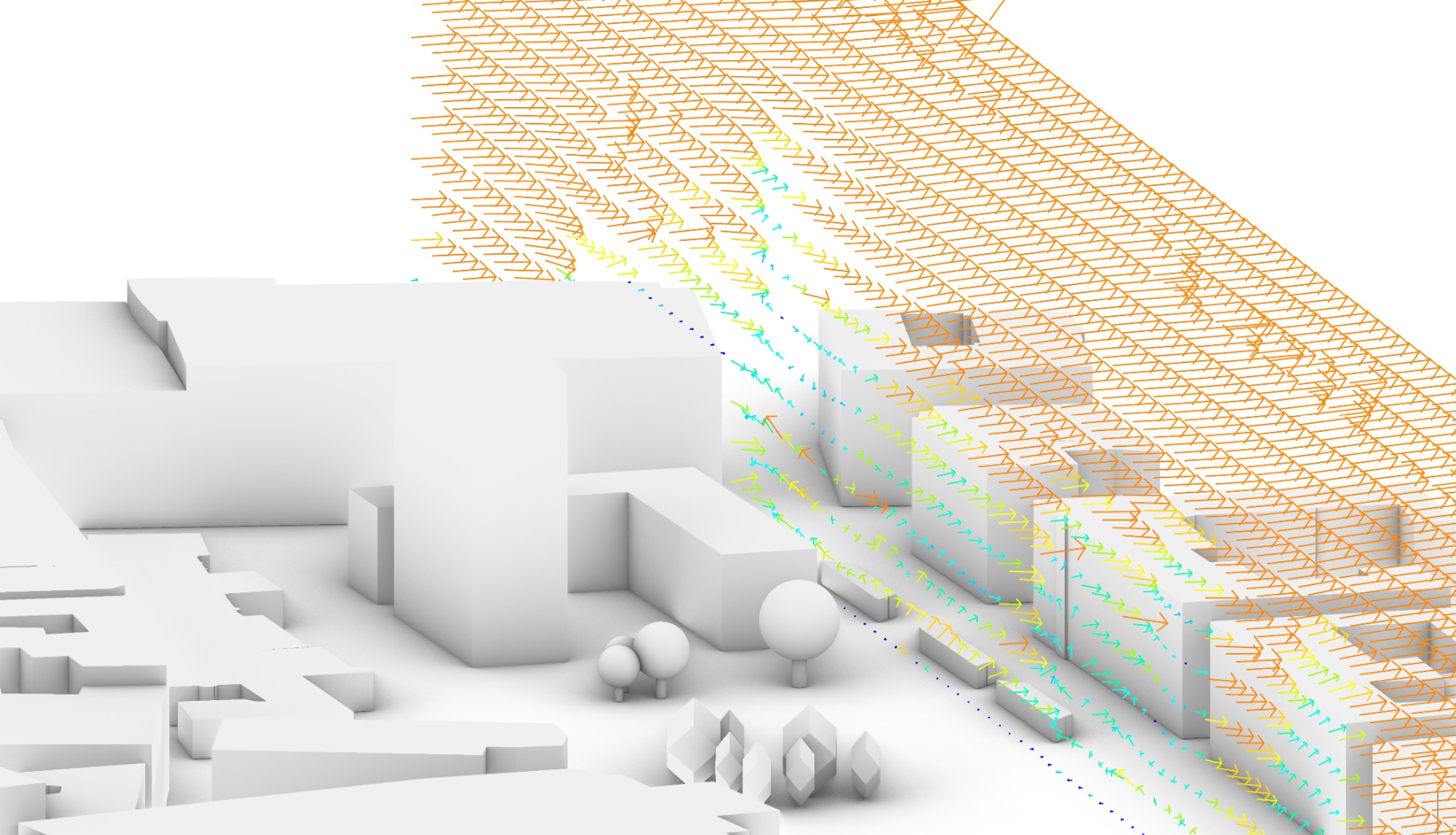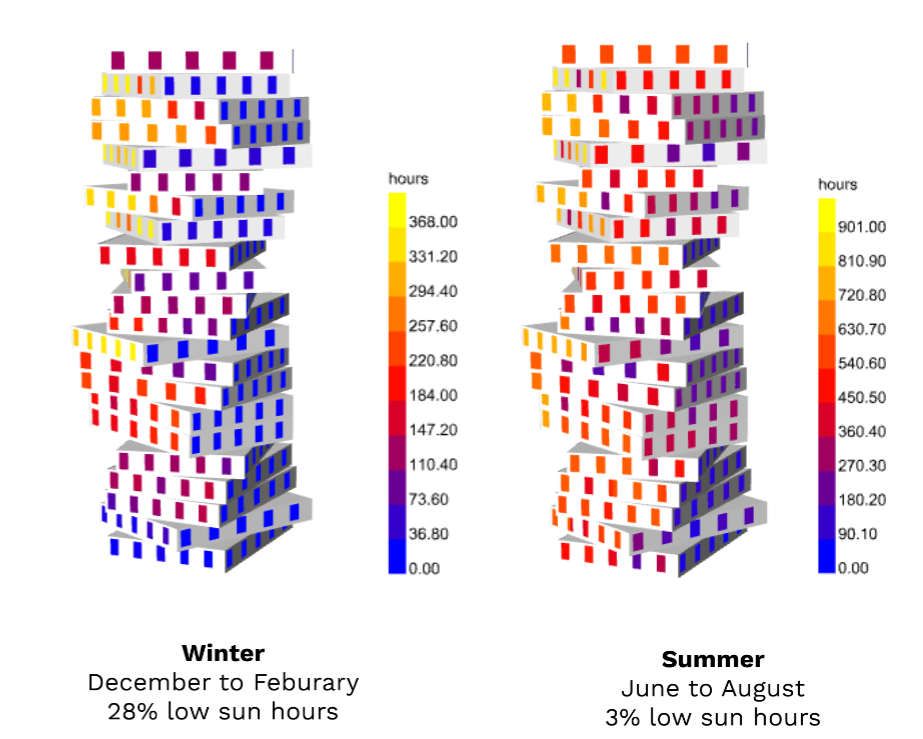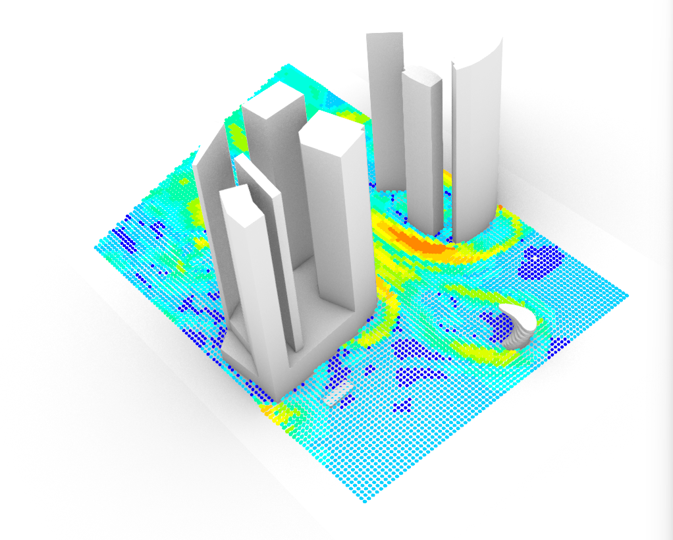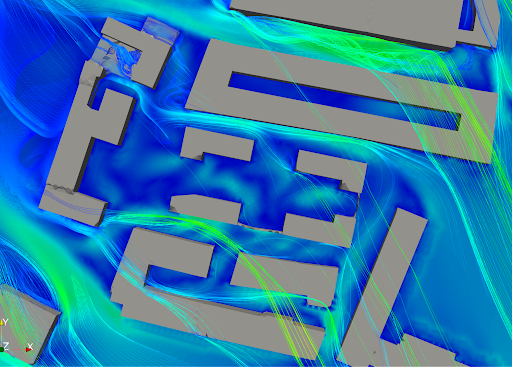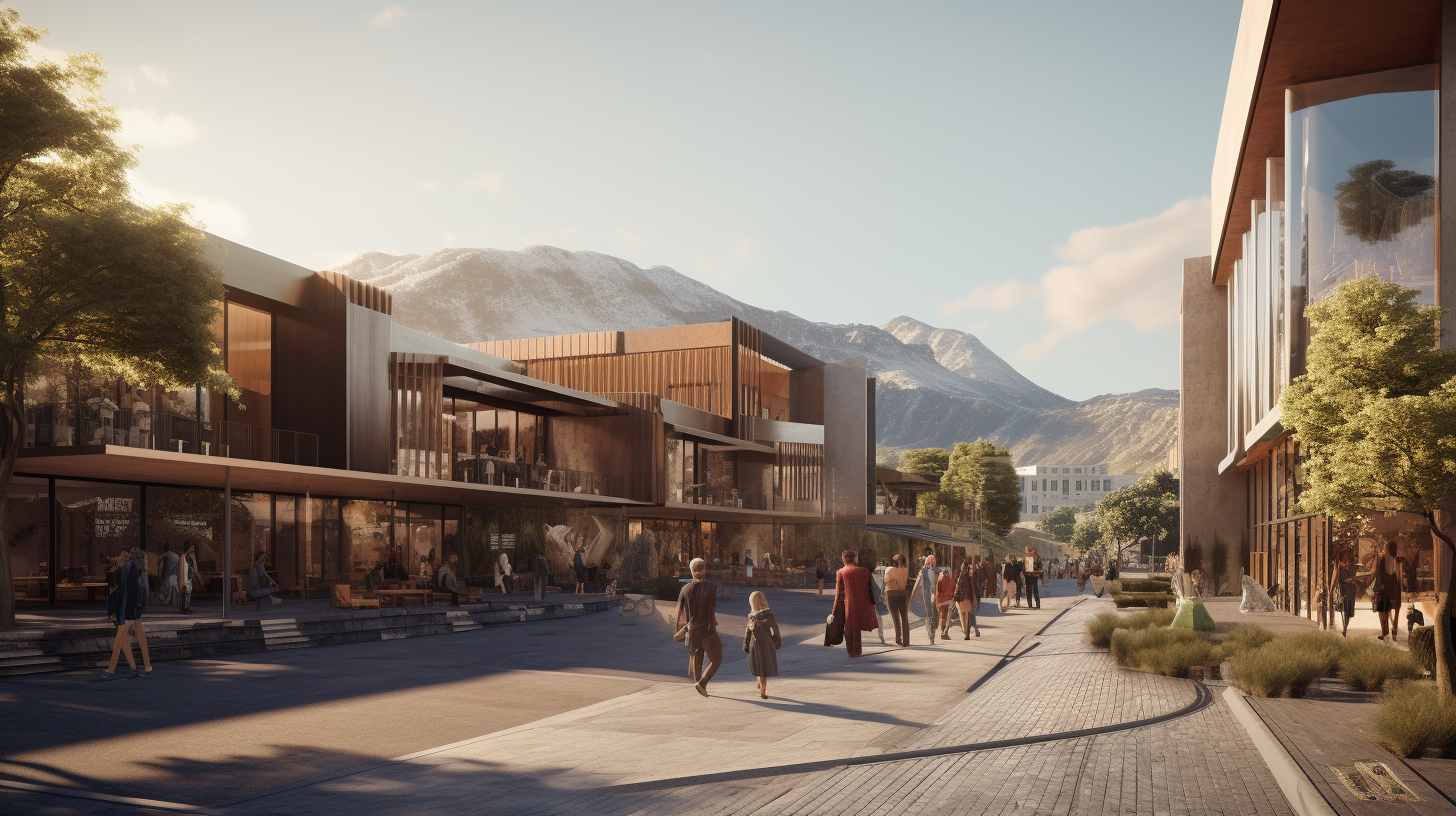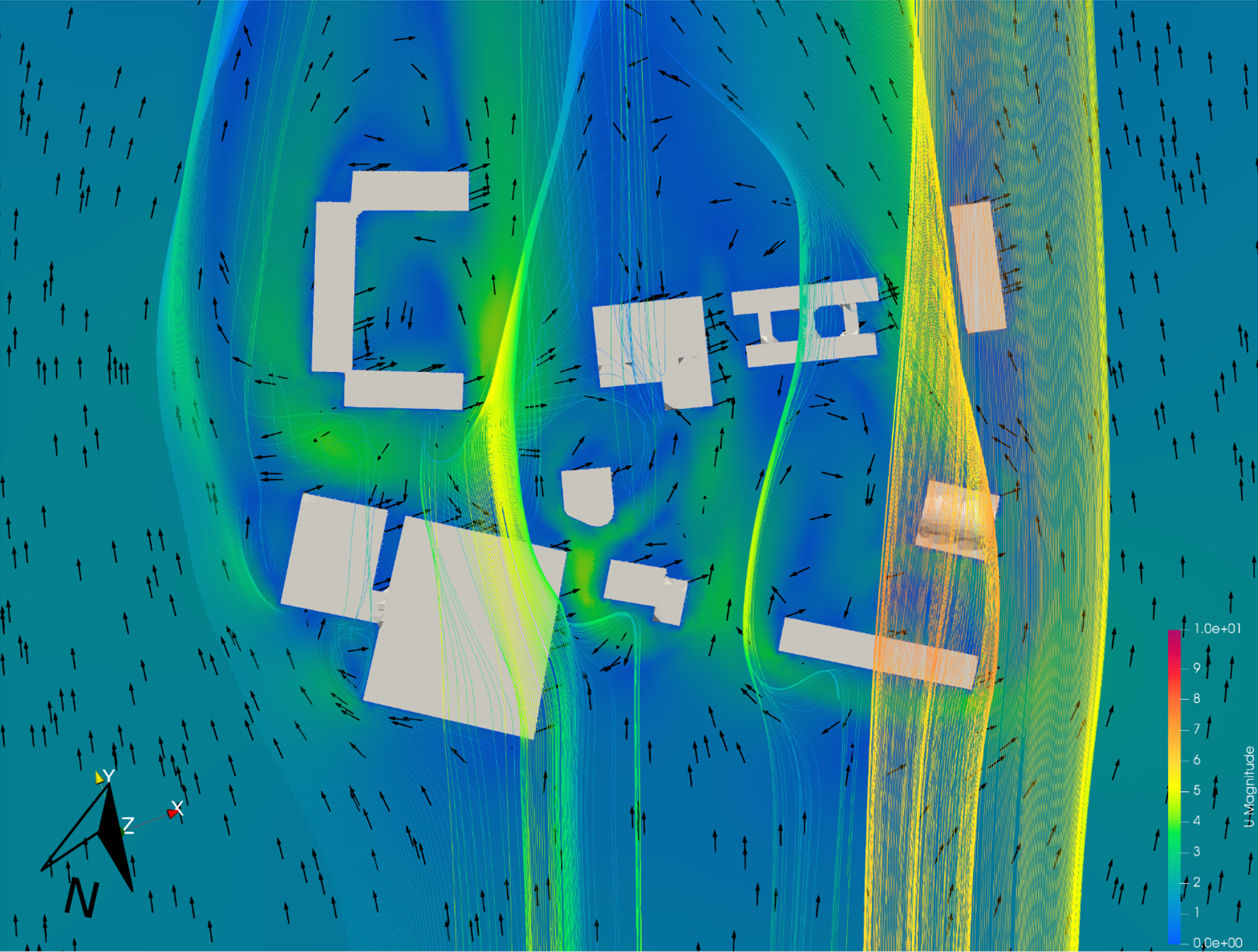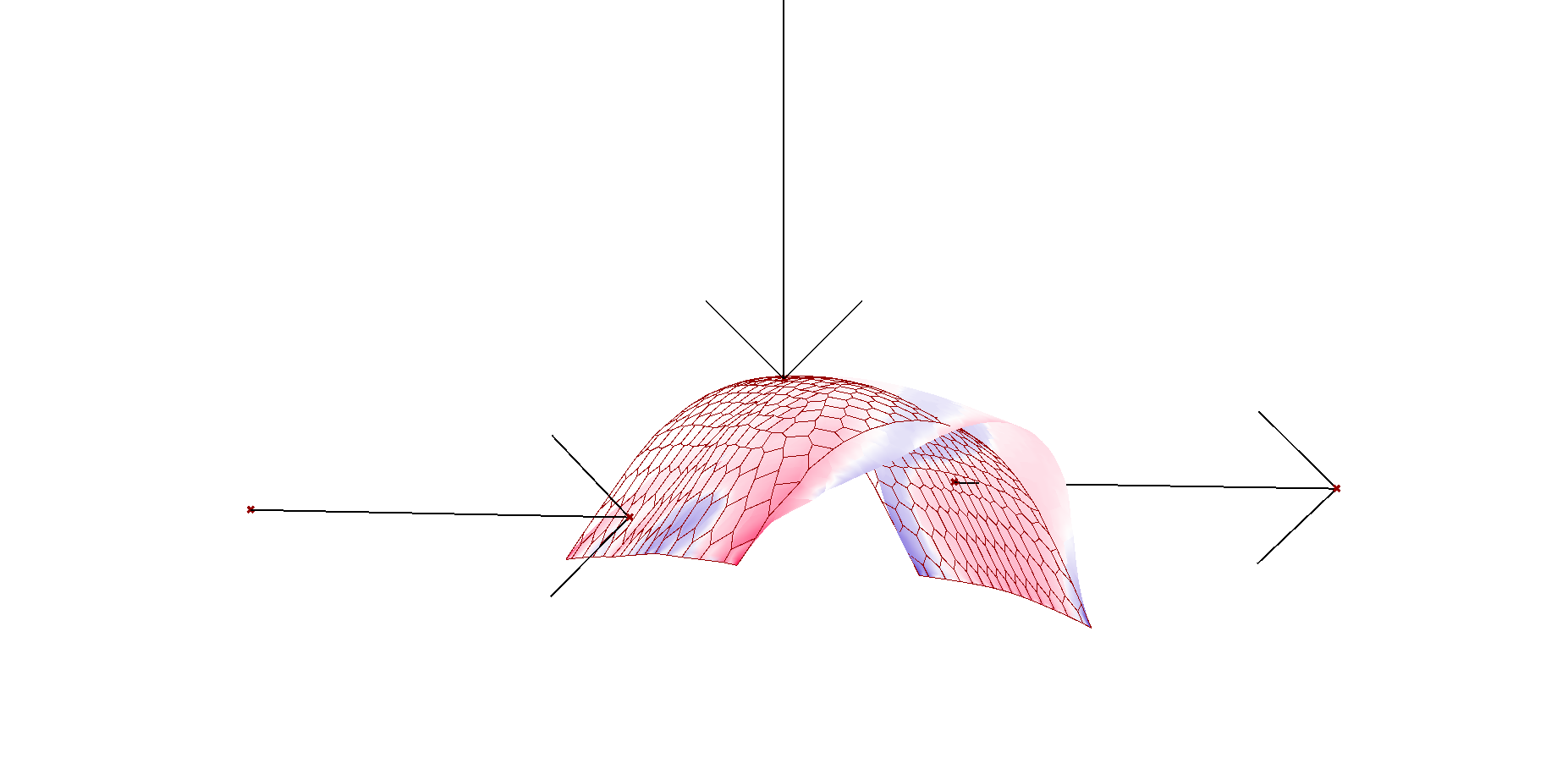This seminar aims to empower students with the theoretical background and the technical expertise to inform architectural design in an urban case study site using environmental simulations.
Syllabus
Syllabus
Digital Tools for Environmental Analysis
MaCAD Environmental and Structural Design SEMINAR
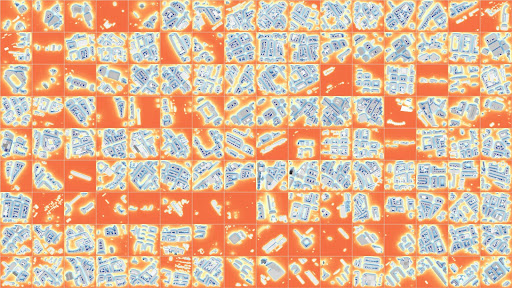
Source: courtesy of Angelos Chronis
The undoubtedly significant contribution of buildings’ performance to the devastating effects of climate change has in the past decades driven research and development efforts in the architecture, engineering and construction industry. To enable the shift towards more performance-aware design, environmental simulation tools have become more readily available through the constant development of new interfaces that incorporate state of the art simulation engines in mainstream CAD frameworks. Architects and urban designers have at their disposal today, as part of their design workflows, a wide range of analytical tools that allow them to assess the environmental performance of their designs, in order to make informed and sustainable design decisions. Further to the incorporation of simulation tools the recent developments in optimization and generative design methods are fundamentally changing the computational design workflow and enable the exploration of vast design spaces, unconceivable by manual processes.
This seminar aims to empower students with the theoretical background and the technical expertise to inform architectural design in an urban case study site using environmental simulations. Either on empty unused land plots or the rehabilitation of existing infrastructures, the projects will have synergy with the rest of the digital tools seminars, allowing the students to apply the knowledge received into a practical and speculative design proposal. This hands-on investigation will enable students to apply evidence-based solutions to complex environmental design problems using state-of-the art software and analytical techniques.
Learning Objectives
At course completion the student will:
- Understand Environmental Simulation principles for Architecture and Urban Design.
- Be able to set out a simulation strategy for a given problem.
- Be familiar with the fundamental simulation engines and integrated tools in Rhino
- Set up and run fundamental simulation studies – Solar Radiation, Daylight and CFD
- Visualise, understand and meaningfully interpret the results of simulations
- Be able to make informed decisions based on the simulation results
Faculty
Faculty Assistants
Projects from this course
Bamboo Bundling
Computational Process Flow for Bamboo Structure Computational Process Flow for Parametrization of Multiple Systems Structural Diagrams- Load Application and Structural Systems Other Bamboo Iterations Constructive Details and System Materialization Site Implementation MACRO SCALE Material Traceback Architectural Drawings 3D AXONOMETRIC DIAGRAM RENDERED IMAGES
Office Building in Uccle, Belgium
Initial analysis: By conducting air temperature analysis for summer and winter we have concluded that Uccle has a cold climate with some hot temperatures in summer. Which mean that we may need to have some heating strategies in order to have comfortable temperatures in the building. Then we continued with the relative humidity analysis where … Read more
Environmental Analysis: Mexico City
Our environmental analysis focused on the unique case of Mexico City, a captivating subject due to its distinctive geographical conditions, being built over the “Lago de Texcoco”. The first is a stable climate season marked by regular weather conditions, while the second is an extreme heat season. This observation underscores the complexity of Mexico City’s … Read more
Pixel Tower: Environmental Design Strategies
This project located in Ecuador, in one of the most extreme weather, we faced serious challenges to create a project more incorporated with the environment using passive shading techniques and vernacular design approaches to self shade most of our building with minimum costs. First lets start with our first proposal which consists of a very … Read more
Climate Analysis: Yellowknife NT Canada
Introduction Yellowknife is today known as the capital city of the Northwestern Territories (NT), Canada but traditionally located in Chief Drygeese territory. It has been the traditional land of the Yellowknives Dene First Nation. The region is subarctic with cold winters and short summers. Wildfires in the surrounding Boreal forests forced residents to evacuate in … Read more
Buenos Aires Environmental Analysis
Current situation Buenos Aires is a densely constructed city characterized by scarce surface vegetation, and is currently experiencing the effects of what is referred to as the Heat Island. Consequences such as elevated temperatures, heatwaves, and increased energy consumption are brought about by this phenomenon. Climate projections suggest that these trends will continue. The location … Read more
Environmental Analysis for Kungsträdgården, Stockholm
Faculty: Angelos Chronis, Aris Vartholomaios, Alex Christodoulou, Ekaterina Vititneva, Lenka Kabosova, Maria Papadimitraki Parameters Location: Stockholm, Sweden (59°19’53.8″N 18°04’16.6″E)Building Typology: Residential 1.SUN HOURS, SOLAR RADIATION, VISUALIZATION a. Incident Radiation In alternative A, the two building masses reduce the overall exposure to solar radiation since the higher block provides substantial shading to the longer façades of … Read more
Environmental Analysis for the Design of Commercial Tower, London
The site resides within London’s densely urban landscape, surrounded by skyscrapers and high-rise structures. The analysis of London’s environment reveals it as a temperate maritime climate, experiencing four distinct seasons: Spring, Summer, Autumn, and Winter. A study of the sun path highlights extended sun hours in Spring and Summer, diminishing in Autumn and Winter, affecting … Read more
Testing Vernacular Approach through Environmental Analysis
Understanding the Site General Climatic condition in india Kochi_India Kochi is located in the southern state of Kerala. It is one of the important ports of the country. The city is a collection of islands connected through inland waterways. Kochi being a coastal town, has a mixed landscape varying from highlands to coasts The general … Read more
The Tale of Mumbai – Environmental Analysis for a High-Rise Tower
Mumbai is located in India and has a warm and humid climate. To understand the holistic city planning in Mumbai, the ISHRAE code for thermal comfort was understood concerning Analyses that were carried out. From the standards, we could see that 35 degrees Celsius and above was considered to be hot and below that temperature … Read more
Singapore Twist Tower
Climate Analysis and Design Optimisation Our project site is Singapore which is located in Southeast Asia. We chose Marina Bay area as our project site. The climate in Singapore is generally hot and humid as shown in the climate analysis below. From the sun path, the sun travels directly overhead throughout the year with high … Read more
Urban Block in Gdansk – Environmental Analysis
Context The city that we selected for our project was Gda?sk – a city in Europe, in northern Poland with a coastal and temperate climate. We looked closely at temperature, humidity, radiation, and wind during our research on the local climate conditions. Climate analysis Gdansk experiences a moderate climate with warm, but not excessively hot … Read more
Climate-Responsive Design in Boulder, CO
Context The city of Boulder, CO is populated by low-rise buildings and is known for a cold, dry climate given its high altitude and proximity to the Rocky Mountains. The investigated project involved selecting parameters that could respond to these characteristics and improve both outdoor and indoor comfort. The proposed structure is a 450 m2 … Read more
Climate-Responsive Cultural Center in Dresden, DE
Our Project is a Cultural center Located in Dresden (East Germany) on a small Plot trapped with close buildings from the northern and southern sides. The goal of this Sustainable study is to analyze the design form and, the envelope and to optimize its building performance and Urban Impact. Yearly Climate Analysis General Climate Overview: … Read more
Segmental Timber Panel Shell Structural Analysis
Tahsis BC Canada Our project is located in Tahsis, BC a former timber milling town that has become dilapidated since the closure of the sawmill in 2001, with a population decline of 90%. We aim to reinvigorate the town by providing access for tourism, attracted by the wildlife that has returned to the inlet since … Read more








